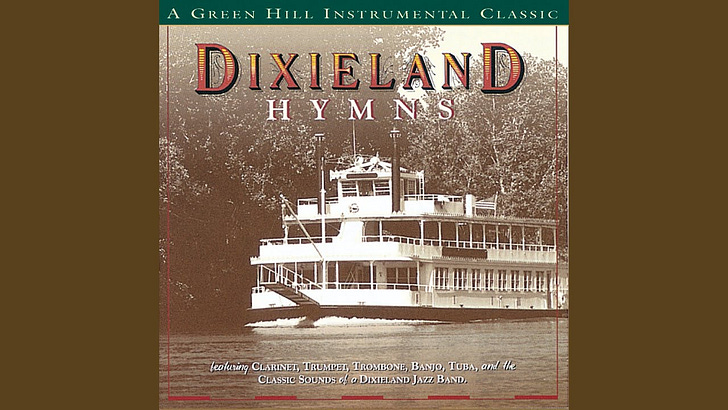For today I’ll set aside our Word of the Week, blackbird, because after all it’s Mardi Gras (Fat Tuesday), and that brings my mind to New Orleans (pronounced NAW-lins by the natives), with its boisterous musical creativity, and this our Hymn of the Week, “When the Saints Go Marching In.” It’s one of those songs that we Americans seem always to have known — I can’t remember when I first heard it, can’t even guess. But I do remember once in 1983, when I was in Bologna, traveling alone through Italy before I met up with cousins in the south I’d never met before, and one night I stopped in a cabaret to hear some jazz music. The instrumentals were fine, and the vocalist had a good voice, but when he was singing this song, all he did was sort of belt out the first line, “When the saints go marching in,” and the next line was complete gibberish — if you can imagine what “English” sounds like to an Italian who doesn’t speak any. I actually considered going up to him later to tell him what the next line was, but I thought better of it.
It’s the kind of folk song that can go on forever, so long as people come up with new first lines, in this case from the Apocalypse or from apocalyptic passages elsewhere in the gospels and the epistles. Well, not just any lines will do: you wouldn’t say, “Oh when the gates of hell are shut . . . I want to be in that number, when the gates of hell are shut”! Such songs are great for revivals, and really, as soon as the nod goes your way, you can sing out something new on the spur of the moment — I’m thinking of a similar song here, “Give Me That Old Time Religion” — “It was good for the centurion / And it’s good enough for me!” And that touch of surprise gets everybody going all the more heartily. Of course, not all of these open-ended songs are religious; I do remember one about a drunken sailor, and what you’re going to do with him earl-eye in the morning.
I said that the guy in Bologna had a good voice, but my favorite singer of this hymn, Louie Armstrong, had gravel on gravel in his throat, yet Louie was a great singer. How that works, it’s hard for me to say; it has to do with phrasing, expression, and feeling, and nobody ever accused Louie Armstrong of being dispassionate. Anyhow, that brave and beloved man from NAW-lins surely played his music for many a Mardi Gras, and though he sometimes led a wild life — four times married — I’ve no doubt that when he sang the line “I want to be in that number,” he meant it. And if you think about the lyrics I’m providing below, it’s really hard not to mean it, if you’re going to sing them at all. Otherwise, holy cow, you’re saying that you want to be in, well, some other number, when there is only one other number, and we know where anyone in the other one is going. But what an energetic song it is, and in this case the jazz isn’t abstract or intellectualized; it’s like the blood racing in your veins. So then, let’s all wanna be in that number, when the saints do go marching in!
Oh, when the saints go marching in, Oh, when the saints go marching in, Oh Lord, I want to be in that number When the saints go marching in! Oh, when the drums begin to bang, etc. Oh, when the stars fall from the sky, etc. Oh, when the sun refuse to shine, etc. Oh, when the moon turns red with blood, etc. Oh, when the trumpet sounds its call, etc. Oh, when the horsemen begin to ride, etc. Oh, when the new world is revealed, etc. Oh, when they gather round the throne, etc. Oh, when they crown him King of kings, etc. Oh, on that Hallelujah day, etc.




Not quite apocalyptic but how about
Oh when the birds sing out God’s praise…..
I should add—not at a club, just playing up a storm on a street corner.